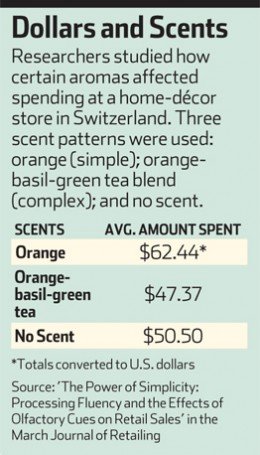Some will say selling is an art, but studies have shown that being able to close a deal successfully involves more science than art. There’s no denying the fact that – regardless of whether you are a home owner trying to sell your house, or a real estate agent showing a house to a potential client – you will have to rely on your knowledge of the property, personal charisma, and no small amount of psychological techniques to persuade somebody that a particular home is the perfect one for them.
Here are some science-backed studies that examine how home buyers’ think, and how you can use these tips to sell a home.
The 5-Second Rule
No, we’re not talking about dropped food here. According to the “Psychology of House Hunting” report by BMO Financial Group, 80% of prospective buyers know if a home is right for them within literally seconds of stepping inside. This means that the house will need to make a great first impression when they view the property, and that usually means the entrance or hallway that they see when they first step foot inside. While it can be difficult to keep things tidy, especially when people are still living in the house, you can always keep everything neat and organized: racks and cupboards for shoes, bowls for loose change, hooks for keys, and everything else stashed out of sight during a viewing. Don’t forget to clean up!
Fun Trivia: In 2000, the average attention span was 12 seconds, but this has now fallen to just eight seconds. The goldfish is believed to be able to maintain a solid nine seconds. It’s official; we now have shorter attention spans than a goldfish.
“Scents” and Sensibility
Sight is important during a viewing, but many tend to neglect the fact that smells can make or break a deal too. A study by Eric Spangenberg at Washington State University found that people will spend 32% more in stores with a simple orange scent than those with a “complex” scented blend of orange, basil and green tea. This is because people subconsciously process and try to identify the scents, which can distract from the task at hand.
So, it may be best to keep your house odour-free (or fragrance-free), as scent preferences are very subjective. If you really want to go for a scent, keep it fresh, simple and subtle, like lemon or pine. A few spritzes of good, clean Febreze will do the trick as well.

Fresh, clean and mild scents like lemon, pine or basil are recommended if you want some scents, otherwise go for a scent-free environment
Numbers Are Important
When you’re buying (smaller) items like clothes or groceries, the same item that has a price tag of $19.99 will sell better than if it had a round $20 tag. This is known as “charm pricing”. However, this tactic doesn’t usually work when it comes to big ticket items like homes. This is because the more it obviously tries to look like a bargain, the more buyers will have a knee-jerk impulse to turn away.
But does that mean round numbers will be more attractive? Apparently not. A study by Columbia Business School found that asking for a specific and precise amount was more successful in closing deals compared to rounded-off prices. This is because the person making a precise offer is successfully giving the illusion they have done their homework. When perceived as better informed, the person on the opposite end believes there is less room to negotiate.
In a more Malaysian context, most buyers (especially Chinese) dislike having too many 4’s in whatever number because it looks like a bad omen (4 sounds like ‘death’ when pronounced in Chinese); so unless the property’s value is in the 400k or 4 million range, it may be best to keep the 4’s to a minimum when selling your house.
Conclusion? Numbers do matter.
Staged Homes Sell Better
Research has shown that staging a home works to sell a home much more easily. A study by the U.S. Real Estate Staging Association looked at 63 unstaged homes that remained on the market for an average of 143 days; however, once they were professionally staged, the houses were sold an average of 40 days after their ‘makeover’. The lesson here? Pay attention to the presentation of the house you’re trying to sell. It doesn’t have to be expensive or professional. For example, if a house is empty, simply get some furniture back inside the house to add some life and cover flaws. If the house already has furniture, make sure it’s the right furniture for each room. For example, if you have a bedroom turned into an office/work room, change it back into a bedroom. Even if the house has three or four bedrooms, on a subliminal level, only the rooms with beds will be seen as bedrooms. Strange, but true.
Not quite sure how to stage a home to take amazing photos for your online property listings? Check out some useful tips here!
 The Illusion of Demand
The Illusion of Demand
We are inherently programmed to value things that are scarce over items that can be easily obtained. That is why phrases like “limited edition”, “selling fast”, “x units left”, “while stocks last” and other similar wordings can make a product sell out faster than normal. The same goes for selling real estate. Once a potential buyer knows that another buyer is interested in the property, there is pressure for one party to make the offer first, for fear of losing out on a good deal or asset. People are sensitive to scarcity and hate missing out on unique opportunities, and a situation like this is the perfect example.
So there you have it – how to make your house’s physical appearance, price and availability seem more attractive to a potential buyer. With great knowledge (power) comes great responsibility, so use it well.










